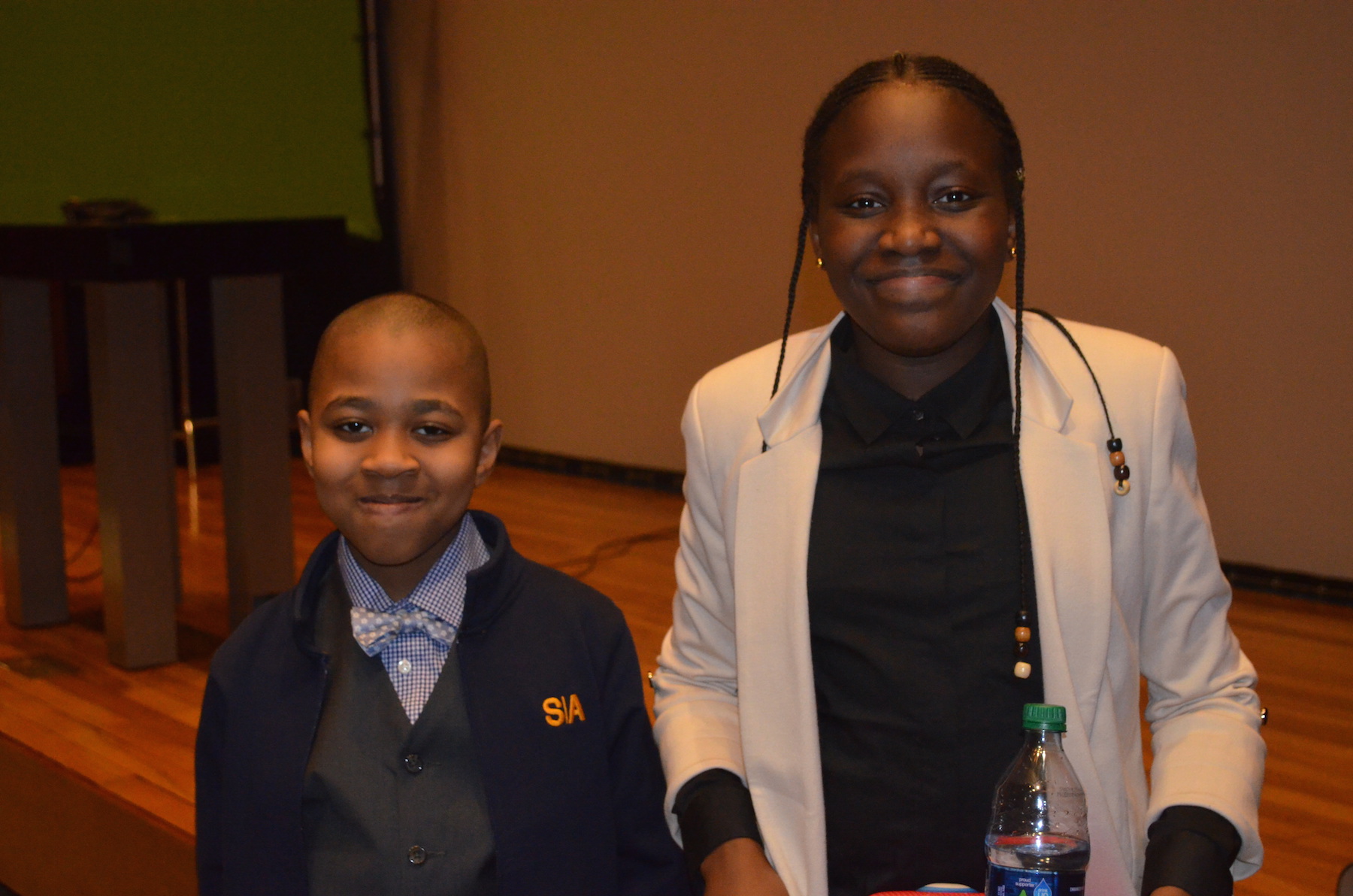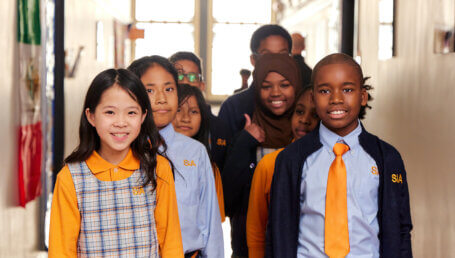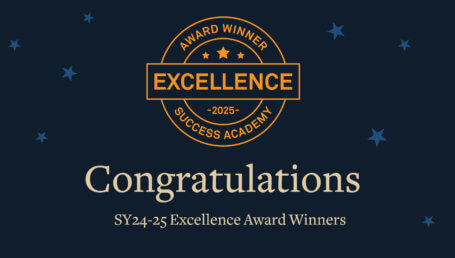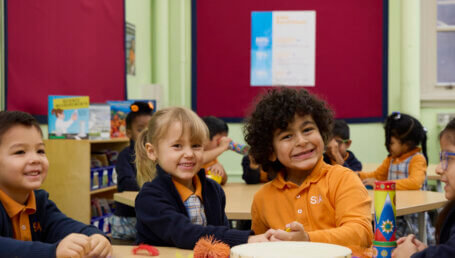

It was 6:30 p.m. on Saturday, February 17, when Success Academy Harlem West sixth-grader Aminata Bathily and seventh-grader Ibrahima Toure found out they were advancing to face their most difficult debate yet at the 44th Annual Harvard National Forensics Tournament.
The pair was one of 42 middle school scholars and 14 high schoolers from Success Academy to compete in the tournament, where they faced hundreds of top-ranked debaters from around the country in policy debate.
Policy is one of the most difficult forms of debate — requiring a pair of debaters, called the affirmative, to introduce and defend a policy about a particular topic (this year’s topic: education reform), while the negative side attacks the plan and counters with examples of how it would harm the status quo.
Aminata and Ibrahima were exhausted — and elated. After debating 12 hours over the past two days, they had won four out of their six rounds and qualified for octofinals. When the two learned they are advancing, they realized they had only an hour to put the finishing touches on their policy proposal, positing that STEAM education (science, technology, engineering, arts, and mathematics) would have a positive impact on education for all students — especially minority children who lacked access to arts programming in the classroom.
Luckily, several middle school coaches immediately huddled with them and SA Harlem West coach J.P. Phillips. As coach Jordan White, of SA Harlem East told them: “Your opponents will have lots of paper in front of them with big ideas and they’re very good at reciting them quickly — but the judges will want to know what’s in your brains. They want to know your ideas.”
Aminata and Ibrahima took their seats at the front of an auditorium, facing two older and more experienced debaters from Brooklyn Tech, a selective, specialized New York City high school. Three judges sat before them.
Aminata began her team’s passionate plea for STEAM education. The pair often addressed the judges directly and made the policy personal. “Imagine if my school lacked the resources to provide an activity like debate for me? How would I be truly engaged in learning?” Aminata asked. During cross-examination, their opponents — the negative side — fired back with what is called a black nihilist critique, stating that the plan was not guaranteed to work — and that federal policies historically failed to adequately help African Americans and would continue to be ineffective.
Their opponents spoke articulately and recited example after example of evidence against the affirmative case. Bombarded by their attacks — multiple theories combating the plan — Ibrahima and Aminata at times were struggling. Nonetheless, the team confidently and completely responded to their opponents’ critiques. As Aminata summarized their case in a final plea, “The negative side isn’t solving the problem, we want to get those black students a higher level through STEAM education, we’re showing that STEAM education will help academic success and even our economy.”
As the debate concluded, the teams shook hands and waited for the final decision, which came after 10 minutes: The judges’ vote was 3-0, in favor of the affirmative side’s STEAM plan.
Aminata put a hand to her head in astonishment and a smile of disbelief spread across Ibrahima’s face.
While providing feedback, one judge emphasized the importance of the pair’s personal testimony, explaining: “There was some irony in this debate in the sense that the two of you, who are not black, are telling the affirmative what they would want and saying that they’ve been a victim of a trick. They’re testifying personally about their own lives, which I found really important. You’re terrific technical debaters, but I thought your responses were completely dismissive of that — and I wasn’t going to vote for it.”
The next morning, the debaters faced another round of the octofinals, where they made their case again. This time, they lost. Nonetheless, their opponent was impressed with their debate skills, especially considering their age “How old are you guys?” he asked after their match — and he was shocked to learn that Aminata was only in sixth grade. “You guys have a great future ahead of you,” he said.
The tournament concluded with 36 wins for SA’s 19 middle school teams at the high school tournament. Our high schoolers performed exceptionally well — with SA High School of the Liberal Arts senior Sekou Cisse winning the Lincoln-Douglas division and his peers senior Aida Bathily and sophomore Tajaih Robinson making it to the quarterfinals and earning a trip to the Tournament of Champions in April!
But losing, as SA’s debate manager, Meagan Kowaleski, often tells scholars, is part of the process. “Our motto is, ‘You either win or you learn.’ We emphasize the importance of taking feedback from the judges and coaches after every round, ” Kowaleski says. “Our middle school teams came to Harvard with special permission to compete at the primarily high school tournament. Our expectation was that they learn as much as they can from the competitors and prove to themselves that they have what it takes to compete at the level of students who are five, six , and seven years their senior.”
I interviewed Ibrahima and Aminata Asked about their win. Ibrahima said, “There are no words that can describe how I felt — it was indescribable. But if you go in with confidence, you will win.” Watch more of the interview here.
Below are photos of all of our middle schools who competed in the tournament:










